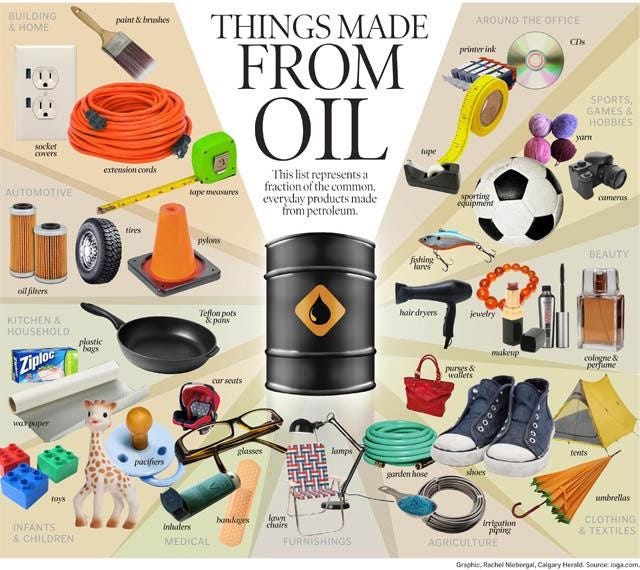Dear Investor,
before we get into this article’s topic, I want to point out that very few investors have the knowledge and time to profit from commodity stocks. But they are the exception and are usually institutional investors specializing in the energy sector. However, there are good reasons to stay away from commodity stocks. For me, it comes down to my core investing philosophy of fishing in the right pond. I’ll explain why:
They Don’t Have Brand Value
I like to invest a part of my portfolio in companies that create an intangible value that enables them to have premium pricing and premium returns. I previously wrote that branding is a huge benefit for a company’s long-term success which allows them to keep the competition at bay:
Ask yourself: Does your car care whose petrol you buy? Do you care? Would you pay a premium price to refuel your car at Exxon XOM 0.00%↑ even if a Shell SHEL 0.00%↑ or BP BP 0.00%↑ petrol station is on the other side of the road?
They Are Cyclical And Depend on Commodity Prices
Almost any company is cyclical, but I don’t like companies that are very cyclical. A consumer goods company can still be profitable during an economic downturn, just not as much as before. The oil industry, on the other hand, is subject to volatile market conditions, geopolitical risks, and shifting consumer demand for alternative energy sources. This can make it difficult for companies in the industry to generate consistent cash flows or maintain a sustainable competitive advantage over the long term. While stock pundits often make predictions about where oil prices are headed, these forecasts are often inaccurate and should be taken with a grain of salt.
They Don’t Create New Products
I like to invest in companies that evolve by developing new products, new brands, finding new markets, new consumers, and increasing prices. Companies that can (theoretically) keep growing for decades. Food companies can develop new products. Pharmaceutical companies can create new medicine and are protected through patent laws from the competition. Software companies can improve their applications and create new ones, and so on.
Is Competition From Renewable Energy Sources a Problem?
Another challenge facing investors in the oil industry is the increasing demand for renewable energy and the potential for a transition away from fossil fuels. As consumers and governments become more concerned about environmental sustainability, the demand for alternative energy sources is likely to increase. This trend could negatively impact the demand for oil and ultimately the value of oil stocks.
This is true to some degree, but this discussion misses one important point:
Even if one day we’ll all drive Teslas and bicycles (except politicians, they still can use private jets to get to the Davos meetings) and get our energy from solar panels, there still will be demand for oil because of its wide range of applications.
This brings us to the main issue.
But is Constant Demand Not a Benefit?
In theory, yes. But how does demand transform into shareholder value? In the last decade, the world’s largest oil and gas companies have failed to generate enough cash to cover the payments they have made to their shareholders. Let’s take a closer look at the largest 5: Chevron CVX 0.00%↑, Exxon Mobil, Total SA TTE 0.00%↑, Shell and BP.
From 2010 until 3Q of 2019 they collectively rewarded shareholders with $536 billion in dividends and share buybacks, while generating $329 billion in free cash flow over the same period:
With shareholder payouts exceeding free cash flows, the oil majors relied on other sources of cash, primarily by borrowing money and selling assets to sustain dividends and share buybacks. This is not a good strategy to create shareholder value, although financial bloggers or YouTubers often recommend those stocks for income investors.
As you see, a constant demand for a product doesn’t necessarily mean that shareholders will benefit from it. The problems mentioned above are also reflected in the share performance. The oil and gas supermajors are struggling to attract investors and the energy sector has been a weak performer in the S&P 500 SPY 0.00%↑ for a decade.
Final Thoughts
I prefer predictability and consistency. I can avoid high uncertainty by fishing in the right pond. My investing philosophy is mostly about avoiding mistakes and I think the best way to do this is by limiting the possibility of mistakes. Choosing stocks from the right group is the key to success and therefore I stay away from the energy sector which seems to be too problematic.
Until the next issue. 👋
If you aren’t a subscriber yet, then sign up below to not miss out on future articles.
Disclaimer: This analysis is not advice to buy or sell this or any stock; it is just pointing out an objective observation of unique patterns that developed from my research. Nothing herein should be construed as an offer to buy or sell securities or to give individual investment advice.








